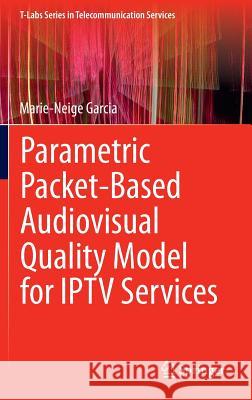Parametric Packet-Based Audiovisual Quality Model for Iptv Services » książka
Parametric Packet-Based Audiovisual Quality Model for Iptv Services
ISBN-13: 9783319048543 / Angielski / Twarda / 2014 / 241 str.
This volume presents a parametric, packet-based, comprehensive model to measure and predict the audiovisual quality of Internet Protocol Television services as it is likely to be perceived by the user. The comprehensive model is divided into three sub-models referred to as the audio model, the video model, and the audiovisual model. The audio and video models take as input a parametric description of the audiovisual processing path, and deliver distinct estimates for both the audio and video quality. These distinct estimates are eventually used as input data for the audiovisual model. This model provides an overall estimate of the perceived audiovisual quality in total. The parametric description can be used as diagnostic information. The quality estimates and diagnostic information can be practically applied to enhance network deployment and operations. Two applications come to mind in particular: Network planning and network service quality monitoring. The audio model can be used indifferently for both applications. However, two variants of the video model have been developed in order to address particular needs of the applications mentioned above. The comprehensive model covers effects due to resolution, coding, and IP-packet loss in case of RTP-type transport. The model applied to quality monitoring is standardized under the ITU-T Recommendations P.1201 and P.1201.2.











